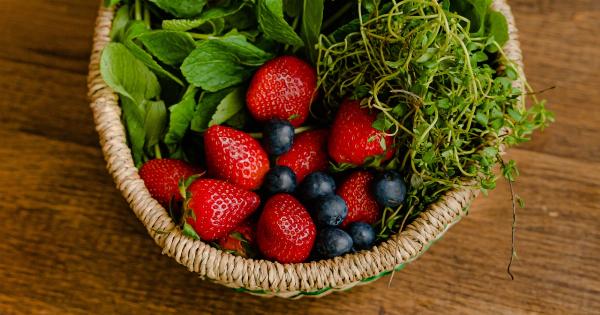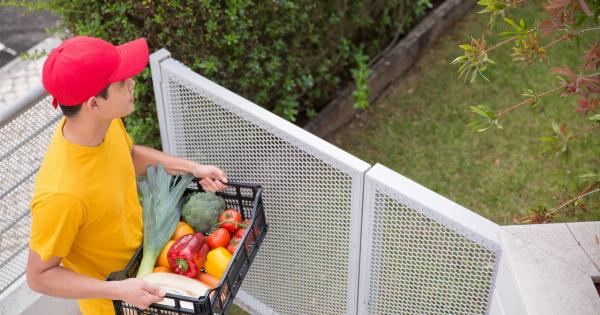If you’re trying to conceive, you want to do everything possible to give your baby the best start in life. One thing you may not have considered is reducing your exposure to pesticides.
Pesticides are chemicals used to kill insects, weeds, and other pests that damage crops. Unfortunately, they can also be harmful to humans, especially if they are used improperly. Here are some ways to reduce your exposure to pesticides while trying to conceive.
Choose Organic Produce
The easiest way to reduce your exposure to pesticides is to choose organic produce whenever possible. Organic produce is grown without synthetic pesticides and fertilizers, and is often fresher and more nutritious than conventionally grown produce.
Look for the USDA organic label on fruits and vegetables, or shop at your local farmer’s market, where you can talk to the growers and learn more about their growing practices.
Remove the Skin of Fruits and Vegetables
If you can’t always afford organic produce or if it’s not available in your area, you can still reduce your exposure to pesticides by removing the skins of fruits and vegetables.
Pesticides are often found on the surface of produce, so peeling or washing them can remove most of the residue. Even if you choose organic produce, it’s a good idea to wash them before consuming to eliminate any bacteria or other contaminants.
Avoid Pesticide-Laden Foods
Some foods are more likely to have pesticide residues than others. For example, the Environmental Working Group (EWG) has identified the “Dirty Dozen,” a list of produce items that typically have the highest pesticide residues.
These include strawberries, spinach, kale, nectarines, apples, grapes, peaches, cherries, pears, tomatoes, celery, and potatoes. If you can’t find organic versions of these foods, it’s best to avoid them or eat them in moderation.
Use Natural Pest Control Methods
If you have a garden or indoor plants, consider using natural pest control methods instead of synthetic pesticides.
These can include planting companion plants that repel pests, using insecticidal soap or neem oil, and encouraging natural predators like ladybugs and birds. Not only will this reduce your exposure to pesticides, but it’s also better for the environment and the beneficial insects that help pollinate your plants.
Avoid Using Pesticides in Your Home
If you use pesticides in your home to control pests like ants or cockroaches, this can also expose you to harmful chemicals.
Instead, try using natural pest control methods like sealing cracks and gaps, keeping your home clean and clutter-free, and using ant baits or traps. If you must use pesticides, choose products that are specifically labeled for indoor use and follow the instructions carefully.
Reduce Exposure to Pesticides in Your Community
Pesticides can also be present in your community, especially in public parks, playgrounds, and schools.
If you’re concerned about pesticide exposure, you can contact your local government or school board to find out about their pest control practices. You can also advocate for safer pest control methods and support organic farming and gardening initiatives in your community.
Clean Up After Using Pesticides
If you must use pesticides in your home or garden, it’s important to clean up properly after use.
This means storing chemicals in a secure location away from children and pets, wearing protective clothing and gloves, and following the instructions carefully. You should also dispose of any unused pesticides properly, according to your local regulations. Remember that even small amounts of pesticide residue can be harmful, so it’s better to be safe than sorry.
Choose Safer Household Cleaning Products
Many household cleaning products contain harmful chemicals that can be just as harmful as pesticides.
To reduce your exposure to these chemicals, choose products that are labeled “green” or “all-natural,” or make your own cleaning products using ingredients like vinegar, baking soda, and essential oils. You can also reduce your use of cleaning products by cleaning up spills and messes as soon as they occur, and using a vacuum with a HEPA filter to remove dust and allergens from your home.
Get Involved in Advocacy Efforts
Reducing your exposure to pesticides is not only good for your own health, but it can also help protect the environment and future generations.
You can get involved in advocacy efforts by supporting organic farming and gardening initiatives, advocating for safer pest control practices in your community, and writing to your elected officials about the importance of protecting public health and the environment.
Conclusion
If you’re trying to conceive, reducing your exposure to pesticides can help protect your health and the health of your future baby.
By choosing organic produce, avoiding pesticide-laden foods, using natural pest control methods, and advocating for safer pest control practices, you can reduce your exposure to harmful chemicals and help protect the environment.




























